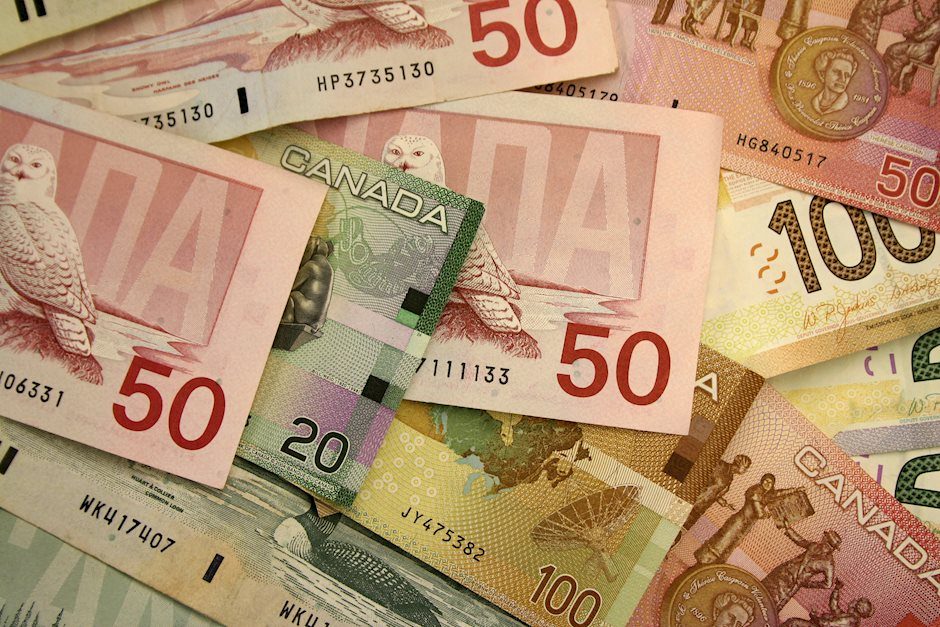USD/CAD rebounds above 1.3700 on lower crude oil prices, traders await US Retail Sales data
- USD/CAD extends recovery 1.3715 in Thursday’s Asian session.
- The US CPI inflation dropped to 2.9% YoY in July from 3% in June, softer than expected.
- Lower crude oil prices weigh on the commodity-linked Canadian Dollar.

The USD/CAD pair trades on a stronger note near 1.3715 on Thursday during the Asian trading hours. The decline in crude oil prices drags the commodity-linked Canadian Dollar (CAD) lower and lifts USD/CAD. Amid the lack of top-tier economic data from Canada, the pair remains at the mercy of USD price dynamics. The US Retail Sales will be the highlight on Thursday.
The US Consumer Price Index (CPI) inflation report indicated that price pressures are on track to return to the Federal Reserve (Fed) 2% target. Nonetheless, the speculation of a deeper rate cut from the Fed has eased. According to the CME FedWatch Tool, traders have priced in nearly a 41% possibility of a 50 basis points (bps) rate cut by the Fed in September, down from 50% before the US CPI data. This, in turn, provides modest support to the Greenback.
Data released by the Labor Department on Wednesday revealed that the US headline CPI inflation eased to 2.9% YoY in July from 3% in June. This figure was below the market consensus. The Core CPI, excluding food and energy, climbed 3.2% YoY following a rise of 3.3% seen in July, in line with the market forecast.
On the CAD’s front, many economists see the Bank of Canada (BoC) cut more interest rates at each of the three policy-setting meetings it has left in 2024, starting in the September meeting. This could weigh on the Loonie in the near term. Additionally, lower crude oil prices are likely to undermine the CAD for the time being, as Canada is the leading exporter of Oil to the United States.
Canadian Dollar FAQs
The key factors driving the Canadian Dollar (CAD) are the level of interest rates set by the Bank of Canada (BoC), the price of Oil, Canada’s largest export, the health of its economy, inflation and the Trade Balance, which is the difference between the value of Canada’s exports versus its imports. Other factors include market sentiment – whether investors are taking on more risky assets (risk-on) or seeking safe-havens (risk-off) – with risk-on being CAD-positive. As its largest trading partner, the health of the US economy is also a key factor influencing the Canadian Dollar.
The Bank of Canada (BoC) has a significant influence on the Canadian Dollar by setting the level of interest rates that banks can lend to one another. This influences the level of interest rates for everyone. The main goal of the BoC is to maintain inflation at 1-3% by adjusting interest rates up or down. Relatively higher interest rates tend to be positive for the CAD. The Bank of Canada can also use quantitative easing and tightening to influence credit conditions, with the former CAD-negative and the latter CAD-positive.
The price of Oil is a key factor impacting the value of the Canadian Dollar. Petroleum is Canada’s biggest export, so Oil price tends to have an immediate impact on the CAD value. Generally, if Oil price rises CAD also goes up, as aggregate demand for the currency increases. The opposite is the case if the price of Oil falls. Higher Oil prices also tend to result in a greater likelihood of a positive Trade Balance, which is also supportive of the CAD.
While inflation had always traditionally been thought of as a negative factor for a currency since it lowers the value of money, the opposite has actually been the case in modern times with the relaxation of cross-border capital controls. Higher inflation tends to lead central banks to put up interest rates which attracts more capital inflows from global investors seeking a lucrative place to keep their money. This increases demand for the local currency, which in Canada’s case is the Canadian Dollar.
Macroeconomic data releases gauge the health of the economy and can have an impact on the Canadian Dollar. Indicators such as GDP, Manufacturing and Services PMIs, employment, and consumer sentiment surveys can all influence the direction of the CAD. A strong economy is good for the Canadian Dollar. Not only does it attract more foreign investment but it may encourage the Bank of Canada to put up interest rates, leading to a stronger currency. If economic data is weak, however, the CAD is likely to fall.
Author

Lallalit Srijandorn
FXStreet
Lallalit Srijandorn is a Parisian at heart. She has lived in France since 2019 and now becomes a digital entrepreneur based in Paris and Bangkok.

















